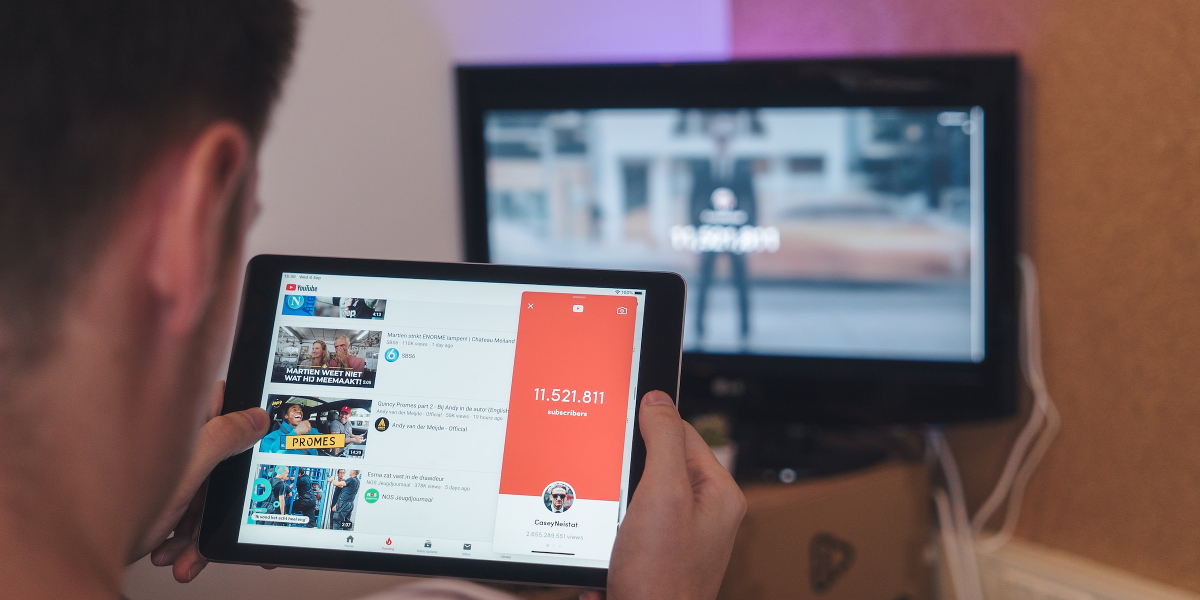As the new reality of the mass-disruption caused by coronavirus sets in, brands and advertisers are rapidly working to adapt their strategies and messaging. But are brands simply pulling spend, or taking a more nuanced approach? And how big of an impact is the crisis having on how agencies are working with their clients, and the ways they’re directing their budgets? VAN spoke with senior figures from a range of agencies to hear about the changes they’re seeing.
 Ruth Cartwright, Managing Partner, Delivery, Carat UK
Ruth Cartwright, Managing Partner, Delivery, Carat UK
Uncertain times, uncertain outcomes. There is very little that people can predict with any level of certainty currently so it is more prudent for me to discuss what I do know. Right now the industry is facing, as is the world, unprecedented times and we are adjusting short term – our content, our scheduling, our viewing and our advertising spends.
Content has been tailored – soaps are less frequent affecting all broadcasters, shows like Saturday Night Take Away and Question Time have no audiences and live sport has been cancelled resulting in Sky Sports already seeing a drop of circa 15 percent in viewing due to loss of premium sports in their schedule. For scheduling, the impact is seeing programmes paused mid-production (too many too mention in the UK & US). Channels are using their back catalogues to fill these gaps, and our viewing across all platforms is unsurprisingly increasing.
Out of all of this, comes our ability to advise and guide our clients. Yes some clients are wanting or rather needing to pull spend, however others are spending and maintaining budgets. We have seen brilliant examples of clients donating airtime, and being innovative and bold when the opportunity arises, like Arla and Co-op recently with #clapforcarers on Channel 4. It is undoubtedly a worrying time for brands but I would expect to see more innovation, more community inspired advertising, and ultimately I would hope a media industry that can tackle certainly the next 3 – 6 months as we have done so far, by adapting.
 Stevan Randjelovic, Director, Brand Safety and Digital Risk EMEA, GroupM
Stevan Randjelovic, Director, Brand Safety and Digital Risk EMEA, GroupM
People are spending more time consuming online content more than ever. This is an opportunity for brands to engage meaningfully with their respective audiences, while being sensible about the situation. However, in these trying times when people are more perceptive to any information, disinformation flourishes.
Remember the headlines that cocaine cures COVID-19, or that COVID-19 is created in special labs? The advertising industry has a role to play by avoiding and demonetising disinformation. This is the greatest challenge of all and we can address it by implementing domain/app inclusion lists or exclusion lists, or working with third party vendors.
On a different note, high quality journalism is of particularly high value in times like these. That is why we advise our clients against blanket blocking of COVID-19 content. Advertisers who want to avoid negative stories about COVID-19, such as death toll or spikes in hospitalisations, can do that via contextual solutions that exist in the market.
 Dino Myers-Lamptey, Founder, The Barber Shop
Dino Myers-Lamptey, Founder, The Barber Shop
I’d like to say it was too early to predict the impact of coronavirus on the agency world, but the truth is, it isn’t. It is only arguably too early to release troubling words of realism as opposed to the usual advertising optimism. The impact is in no uncertain words, catastrophic. When you ask businesses what is their biggest question, it isn’t about working from home or generating sales, it’s about months of canceled orders, fear over paying wages, decimated supply lines and scaling back, fast. Even businesses whose products find themselves in demand are facing challenges supplying with staff in isolation or unable to work in their factories, and charities too are facing crushing times with donations down 40 percent.
For agencies, the effects of all this will be staggered. The working from home challenge is providing a novel distraction from the multiple campaigns being deferred in hope of this all being a temporary change in our behaviours that bounces back in a few months.
For those that can survive, then the opportunity is there to pivot from advertising to help deliver upon the radical digital transformation that could be the most essential thing to keep many of those challenged businesses alive.
 Fern Potter, Managing Director, Neo Media World
Fern Potter, Managing Director, Neo Media World
It’s been amazing to see how businesses have swiftly pivoted their products and operations to benefit and assist in the current global health crisis. This has ultimately impacted their advertising strategy, creating a reallocation of investment and a change in creative messaging to mission and information led campaigns. Examples of this can be seen across the automotive, manufacturing and government sectors.
People’s behaviour has fundamentally changed, with growth in entertainment and video consumption from “how to cut hair at home” to “PE with Joe Wicks”, essentially increasing the scale and opportunity for advertisers to engage their brand with new and existing audiences.
Creative is king, relevance and empathy must prevail, maintaining the importance on context, but communication lines are open. I believe in the long term, brand loyalty will be driven by how brands respond to the crisis with continued respect for privacy and being responsible with their messaging.
 Simon Harwood, Head of Strategy, the7stars
Simon Harwood, Head of Strategy, the7stars
There is no ‘one size fits all’ advice to give clients. We’re recommending they take an evidence led approach to investment decision making and continually review the macro environment.
Now we are past the initial reaction to the outbreak in the UK, we are leaning into fresh strategies to adapt to the current containment period and looking ahead to the long term. This requires clarity of decision-making and the ability to think both short and longer term. We’re encouraging our clients to take a fresh look at comms, consumer experience and product through a digital lens, understanding the new need states where their brands can become more relevant to consumers, as well as the ones where they don’t have a right to play.
We’re operating in a period of huge uncertainty, which makes any kind of planning difficult. However, this means we are leaning heavily into our ability to be agile and think both short and longer-term.
Right now, all communications will be viewed via the lens of coronavirus so we have set out some principles for communication that our clients can adopt during this time of extraordinary upheaval. For some brands that means finding a different role to maintain visibility. As ever, brands can add value and get noticed by being useful, informing, entertaining or connecting people – or a combination of all four.
 Tony King, CEO and Creative Director, King & Partners
Tony King, CEO and Creative Director, King & Partners
The first thing we tried to do is let all of our clients know that we’re running at full capacity, things are stable at the agency, everyone is working remotely, and productivity if anything is slightly up, and that we’re here to support all of their efforts. The whole world has changed over the past few weeks, and we’re trying to just make sure that we’re coming up with new ways to support our clients, whether that’s making sure that messaging in ads or the way they connect with their customers is still relevant and appropriate. We have quite a few luxury brand clients, and we don’t want to appear inappropriate with any messaging about products.
So it’s a very fine balance, even in the way that we’re talking to our clients. Of course we don’t want to appear opportunistic, but we want to make sure that if clients do need to cut costs or cut internal teams, then we can help take up that slack and keep businesses running. I also think we’re all of the mindset that we might need to cut fees a little but, and do whatever we need to do. But together, if all of us can keep the deals flowing and the work happening, then the money will keep moving, and things won’t need to be as bad as they otherwise might be.
And internally, each leader of each teams is making sure they’re keeping connected with their team members. We’re doing a lot of video chats, and have been doing video yoga classes as a company – we’re trying to keep things positive and calm.




